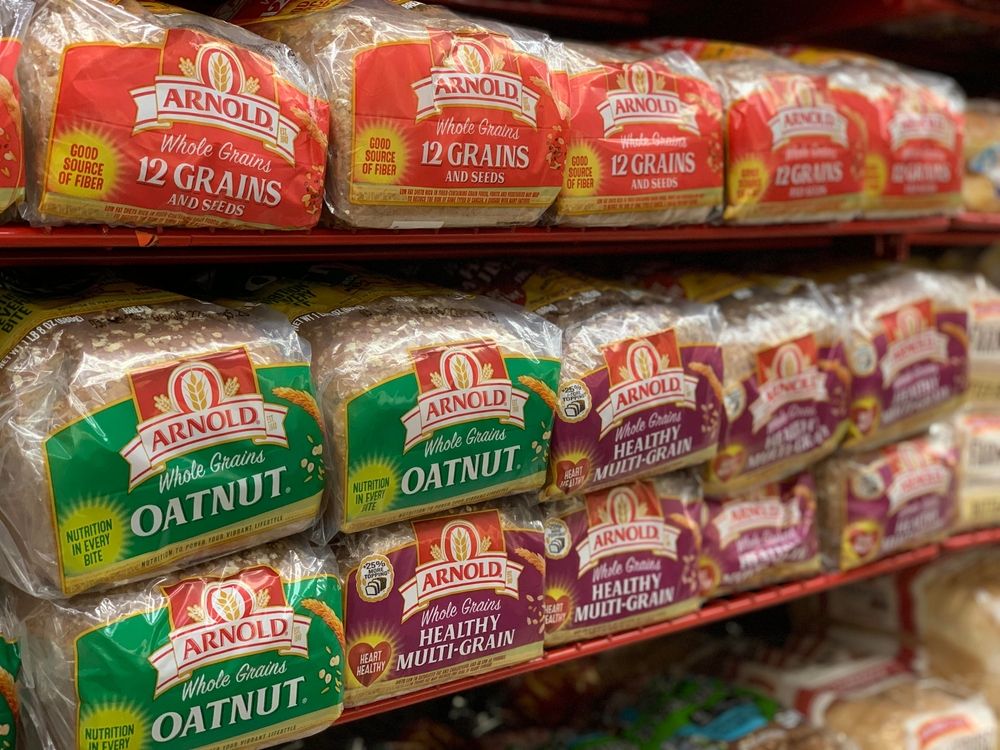Selecting the right bread for your sandwich is crucial, especially when you're filling it with protein-rich ingredients and vibrant vegetables. The key to a healthy bread lies in its simplicity of ingredients. Ideally, a wholesome bread should contain a straightforward list of ingredients, typically including a whole grain (like whole wheat), water, yeast, and salt, as advised by Danielle Crumble Smith, RDN, LD, from Top Nutrition Coaching. However, many breads on the market today lack essential fiber for gut health and are instead laden with sodium, added sugars, and undesirable additives such as artificial preservatives (e.g., calcium propionate), dough conditioners (like DATEM and monoglycerides), and artificial flavors or colors.
To make a healthy choice, pay close attention to these aspects on the ingredient list and the nutrition facts label of the bread:
Look out for breads without added sugars: Steer clear of breads that include added sugars or sweeteners such as high-fructose corn syrup, cane sugar, honey, molasses, among others. As Danielle Crumble Smith points out, while some bread may have minimal sugar for yeast fermentation, it shouldn't be a dominant ingredient.
Choose low-sodium options: Bread is a significant source of sodium in our diets, as noted by the American Heart Association. For heart health, select breads with lower sodium content, preferably under 100 milligrams per slice, as suggested by Andrea Jones, RDN, LDN, from Top Nutrition Coaching.
Focus on fiber: It's important to check the fiber content on the nutritional label. A nutritious whole-grain bread should contain at least 2 to 3 grams of fiber per slice. Smith and Jones recommend looking for breads where "whole wheat" or other whole grains like whole rye or whole oats are listed as the first ingredient. Phrases such as "whole grain" or "100% whole wheat" indicate that the bread is made from the entire grain kernel, preserving more fiber and essential nutrients, according to Smith.
1) Pepperidge Farm Farmhouse Potato Bread
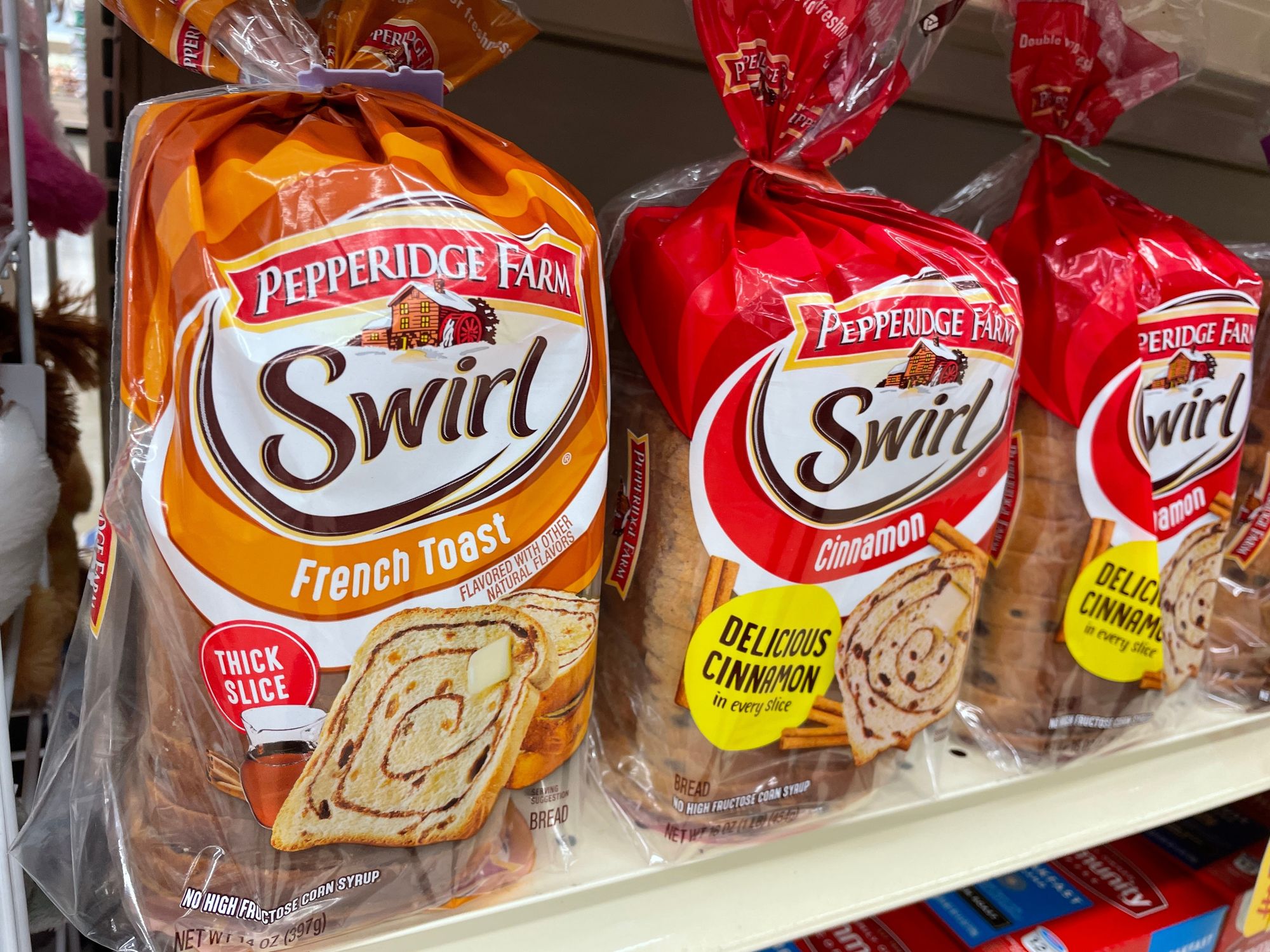
Per 1 slice: 120 calories, 1 g fat (0 g saturated fat), 190 mg sodium, 23 g carbs (1 g fiber, 4 g sugar), 4 g protein
Potato bread, known for its lightness and airiness similar to white bread, lacks the substantiality you might seek in a sandwich.
Its primary ingredient is enriched wheat flour, which is low in fiber. Danielle Crumble Smith points out that while enrichment reintroduces some vitamins, this flour lacks the natural fiber and nutrients present in whole wheat, potentially impacting blood sugar control and digestive health.
The absence of fiber in potato bread means it's digested quickly, which may lead to feeling tired or hungry soon after eating, as Smith notes. Furthermore, each slice contains 4 grams of added sugar. Additionally, potato bread often includes preservatives like calcium propionate and sorbic acid, used to inhibit mold and bacterial growth and extend shelf life.
Smith also mentions that some research indicates these preservatives could be associated with negative health effects, including possible allergic reactions and metabolic impacts.
2) Kings Hawaiian Sweet Rolls
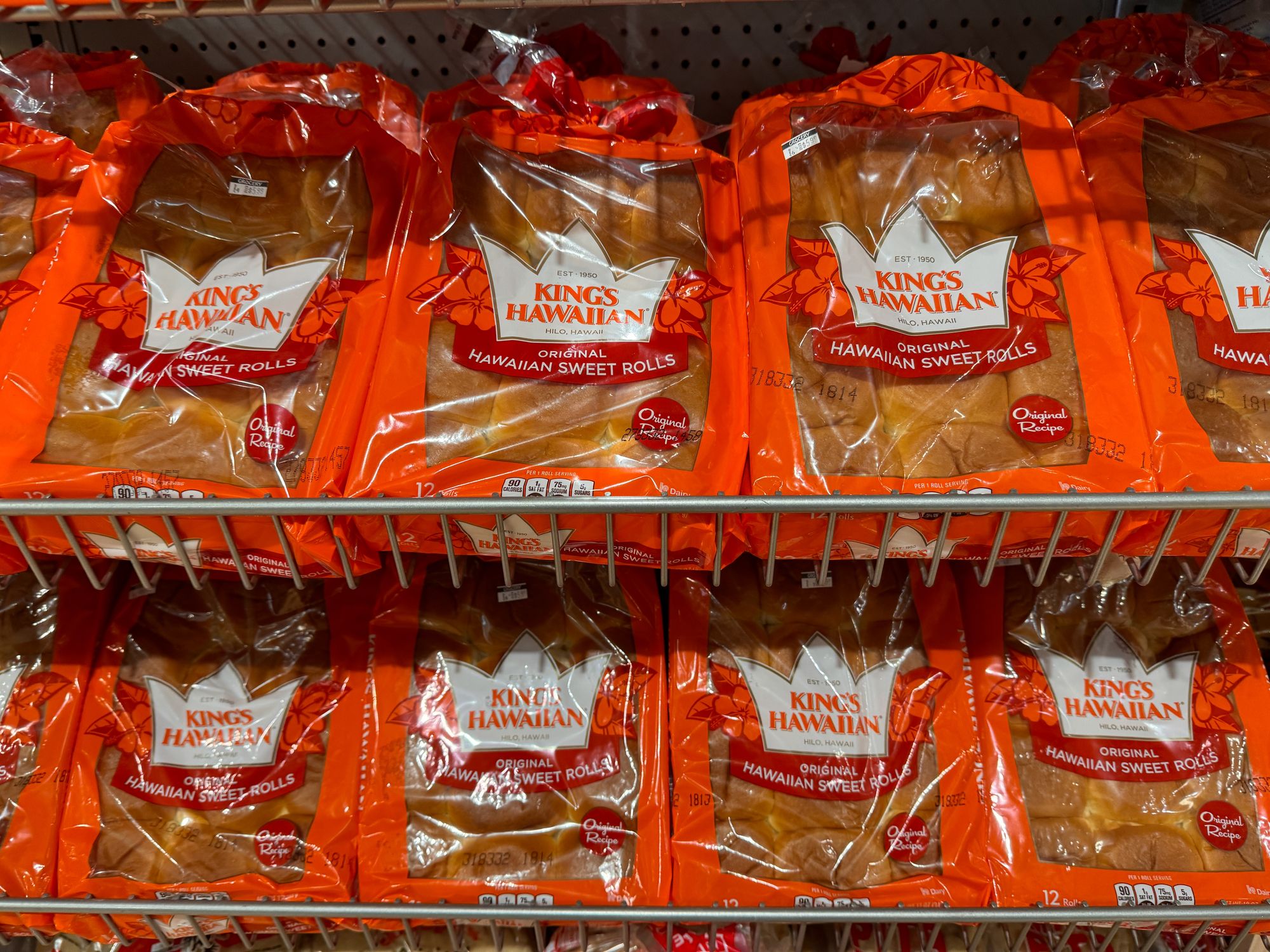
Per 1 roll: 90 calories, 2 g fat (1 g saturated fat), 80 mg sodium, 16 g carbs (0 g fiber, 5 g sugar), 3 g protein
Hawaiian sweet rolls, while a tasty choice for a burger bun, should be consumed sparingly.
Danielle Crumble Smith notes that these rolls do offer 3 grams of protein and 95 grams of sodium per slice, meeting some health criteria. However, their low fiber content and high levels of added sugar and saturated fat diminish their overall nutritional value.
Each roll contains a significant 5 grams of added sugar, and a substantial portion of the fat content is saturated fat. Smith advises that it's best to limit saturated fat to less than 30% of a product's total fat content, as excessive intake of saturated fat is linked to a higher risk of various diseases, particularly heart disease."
3) Pepperidge Farm Hearty White Bread
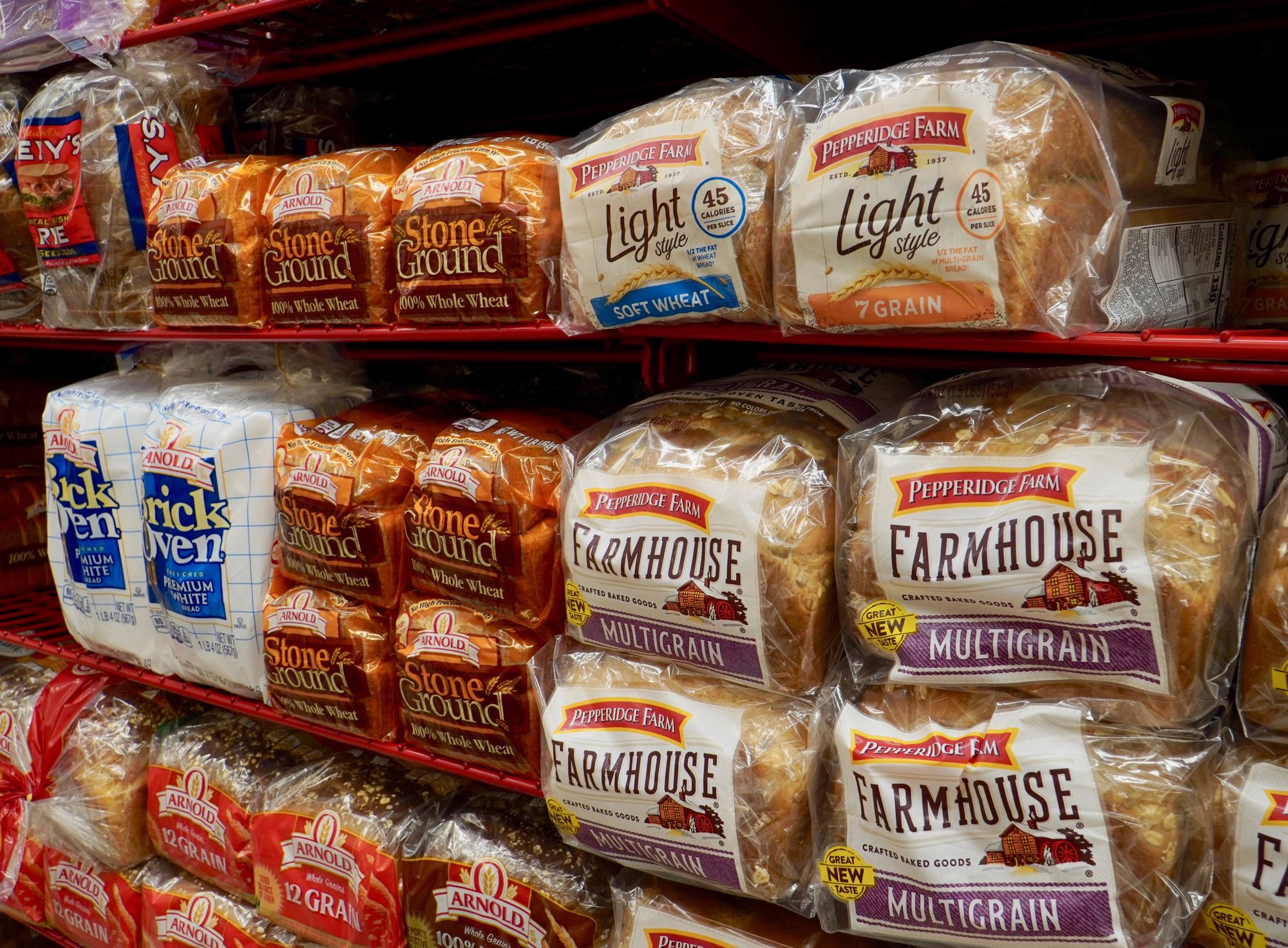
Per 1 slice: 130 calories, 1 g fat (0 g saturated fat), 230 mg sodium, 26 g carbs (1 g fiber, 4 g sugar), 4 g protein
White bread, including this fluffy variety from Pepperidge Farm, is typically made with enriched flour. Although enriched flour is fortified with some nutrients, Danielle Crumble Smith explains that it still lacks the complete range of nutrients and fiber found in whole grains. This can lead to quicker blood sugar spikes and reduced digestive health benefits.
Sugar is the third listed ingredient in this bread, with each slice containing 4 grams. Smith warns that sugar adds extra calories without essential nutrients, which can increase the risk of weight gain and related health issues like type 2 diabetes and heart disease if consumed excessively.
Additionally, this white bread variant contains a higher sodium content than many others, with 230 milligrams per slice. Smith advises that this bread is not only less suitable for heart health but should also be consumed cautiously or avoided by individuals with kidney disease who need to control their sodium intake.
4) Pepperidge Farm Raisin Cinnamon Swirl Bread
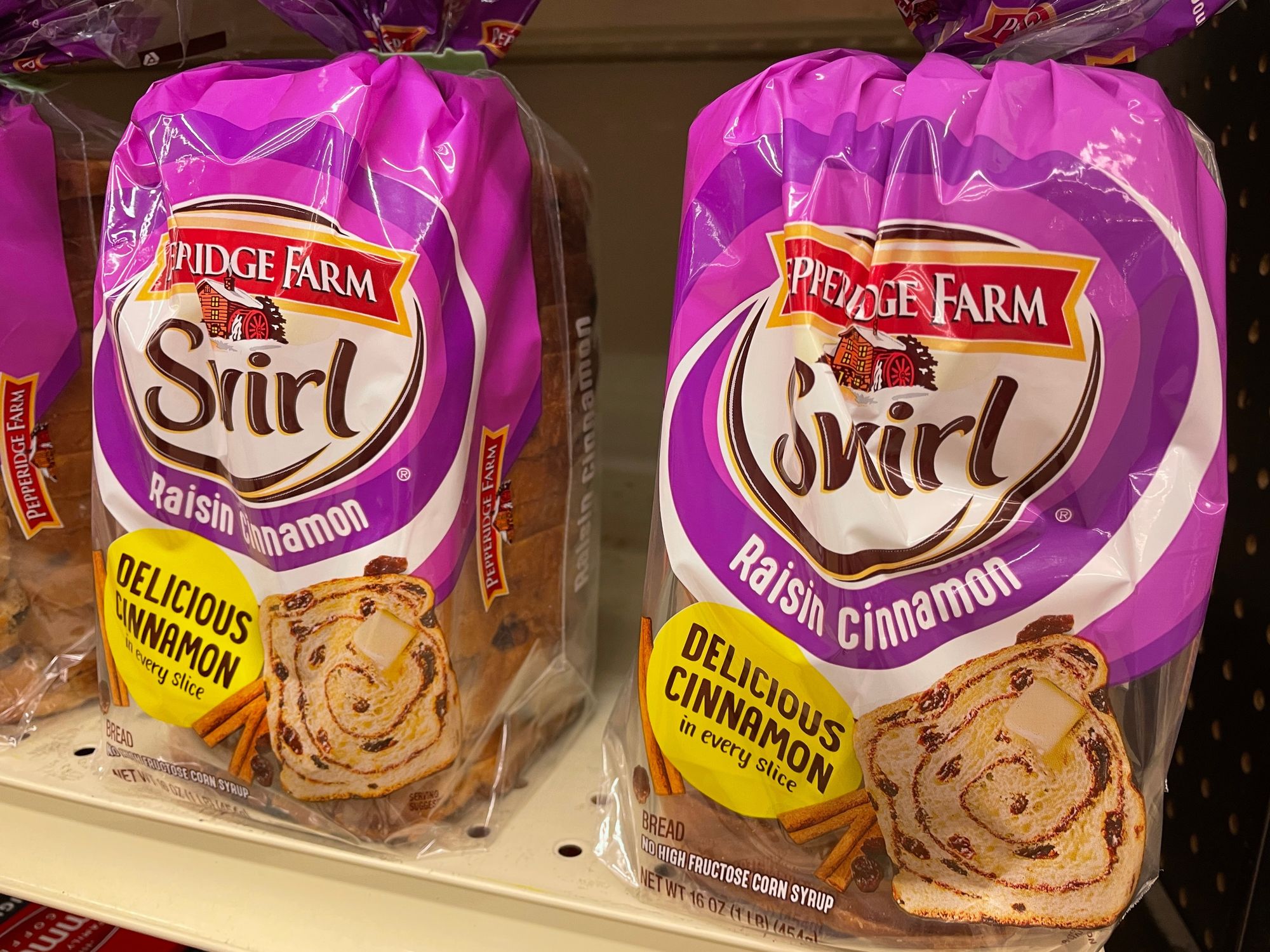
Per 1 slice: 100 calories, 1.5 g fat (0 g saturated fat), 105 mg sodium, 20g carbs (1 g fiber, 9 g sugar), 2 g protein
This cinnamon raisin bread, interspersed with sweet cinnamon and raisins, resembles a dessert more than a component of a nutritious breakfast. Although raisins contribute natural sugars, this particular loaf from Pepperidge Farm includes an additional 5 grams of added sugars, bringing the total sugar content to 9 grams per slice.
Andrea Jones highlights the risks of excessive added sugar consumption, which can lead to issues like weight gain, obesity, type 2 diabetes, and heart disease. Furthermore, this cinnamon raisin bread falls short in fiber content, offering only 1 gram per slice, which is not ideal for a fiber-rich diet.
5) Sara Lee Texas Toast
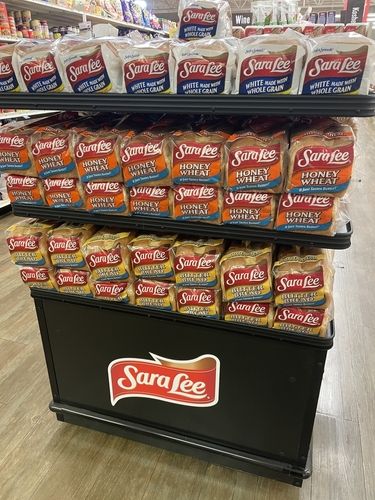
Per slice: 100 calories, 1.5 g fat (0 g saturated fat), 200 mg sodium, 20 g carbs (<1 g fiber, 2 g sugar), 3 g protein
This thick-cut and extra fluffy bread is ideal for making French toast, but just like sweet breakfast treats, it's best reserved for occasional indulgence.
According to Andrea Jones, this bread falls short in various nutritional aspects, though it does provide 2 grams of protein. It contains 2 grams of added sugar and almost no fiber. The most concerning aspect, however, is its high sodium content, with each slice packing 200 milligrams. Jones warns that excessive sodium intake is linked to increased risks of high blood pressure, cardiovascular disease, kidney disease, osteoporosis, and certain types of cancer, making it less suitable for regular.
6) Nature's Own Butter bread
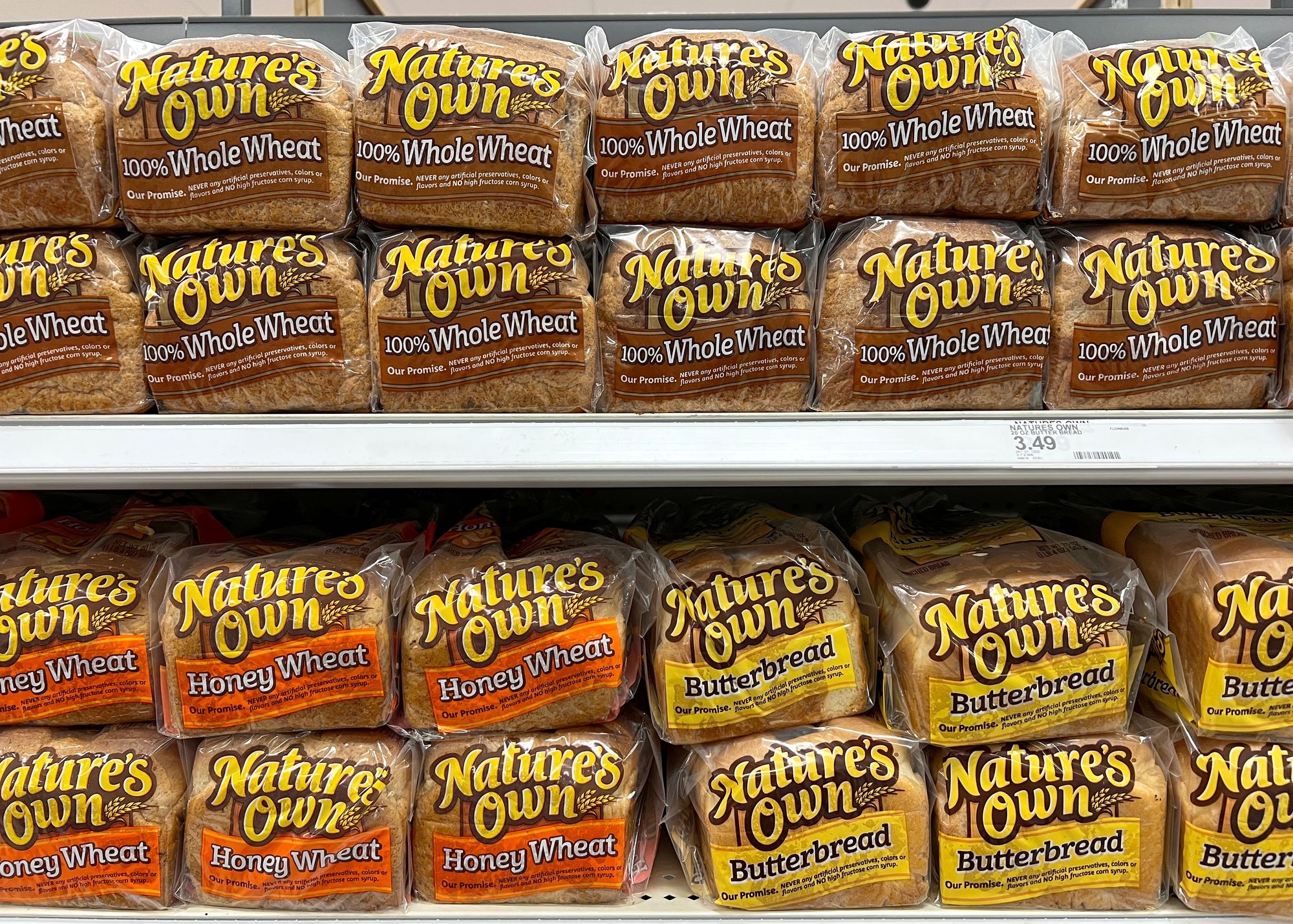
Per 1 slice: 60 calories, 1 g fat (0 g saturated fat), 90 mg sodium, 12 g carbs (0 g fiber, 2 g sugar), 2 g protein
Butter bread, known for its rich flavor from added butter, is not particularly high in fat in this Nature's Own variety. However, where it notably lacks are in its fiber and protein content. The inclusion of 2 grams of added sugar in the recipe is also a concern, but the complete absence of dietary fiber is a more significant issue.
Danielle Crumble Smith emphasizes the disappointment in this bread's lack of fiber, especially considering it's made from grains. She highlights the importance of dietary fiber for health, including its roles in improving bowel movements, preventing constipation, aiding in maintaining a healthy weight, and lowering cholesterol levels. Conversely, a diet low in dietary fiber can heighten the risk of diabetes, heart disease, and certain types of cancer, making this bread less desirable for a health-conscious diet.
7) Sara Lee Artesano Brioche
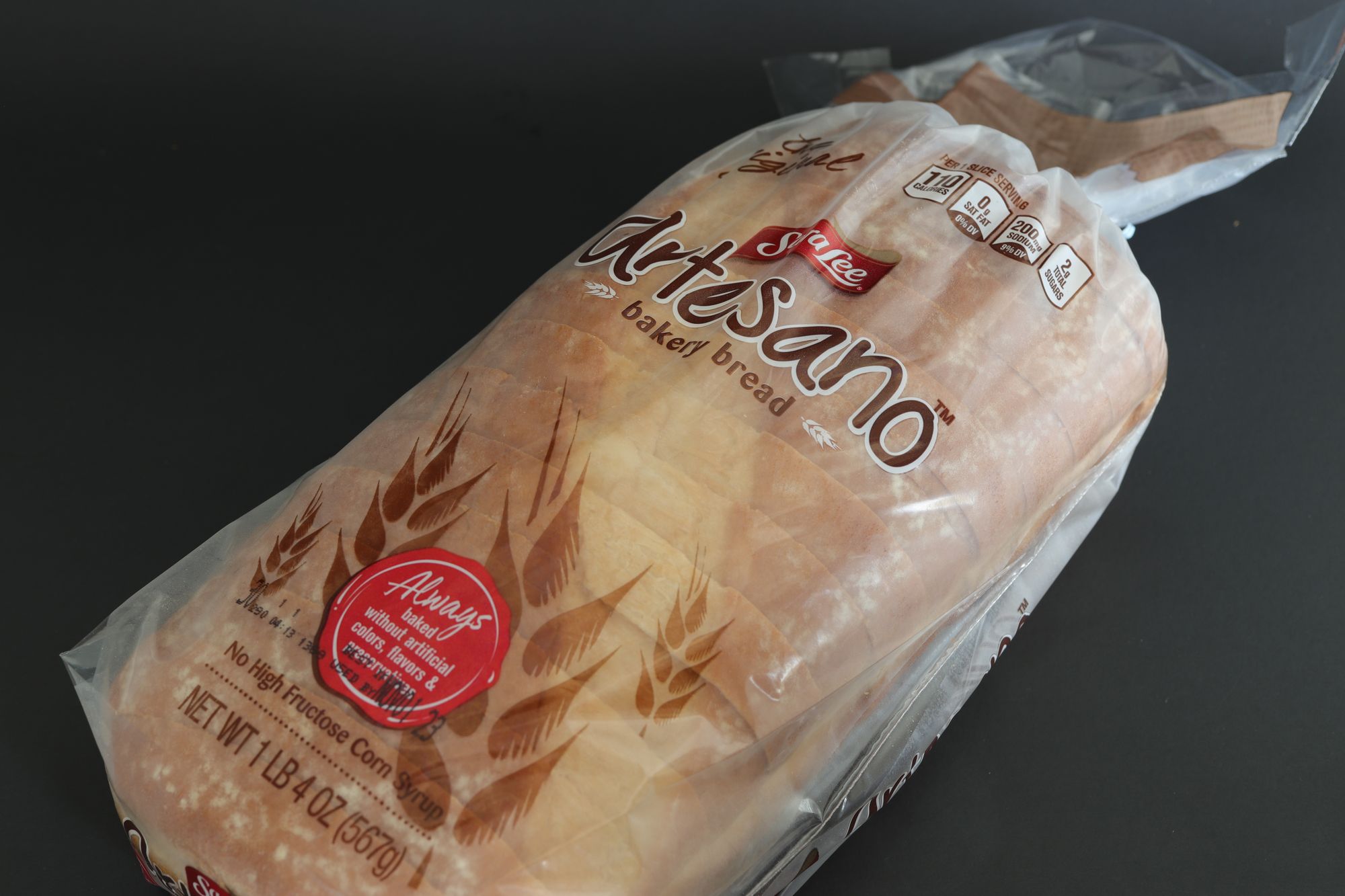
Per 1 slice: 110 calories, 1.5 g fat (0 g saturated fat), 200 mg sodium, 20 g carbs (<1 g fiber, 3 g sugar), 4 g protein
Brioche, with its characteristic mild sweetness, contains 3 grams of added sugars in this variety. Danielle Crumble Smith cautions that high consumption of added sugars can lead to health issues like obesity, type 2 diabetes, and heart disease.
Like many breads on our list, this brioche is made with enriched flour, resulting in a low fiber content. Brioche is traditionally richer in fats, typically from butter or oil. Smith points out that while fats aren’t inherently unhealthy, the high intake of saturated fats found in butter can increase cholesterol levels and the risk of heart disease.
Smith also advises that this bread may not be the best choice for those with high blood pressure or cardiovascular disease due to its higher sodium content, which is 200 milligrams per slice.
Additionally, this brioche contains dairy ingredients such as butter and buttermilk, making it unsuitable for those with dairy allergies or sensitivities.
8) Nature's Own Perfectly Crafted Brioche Bread
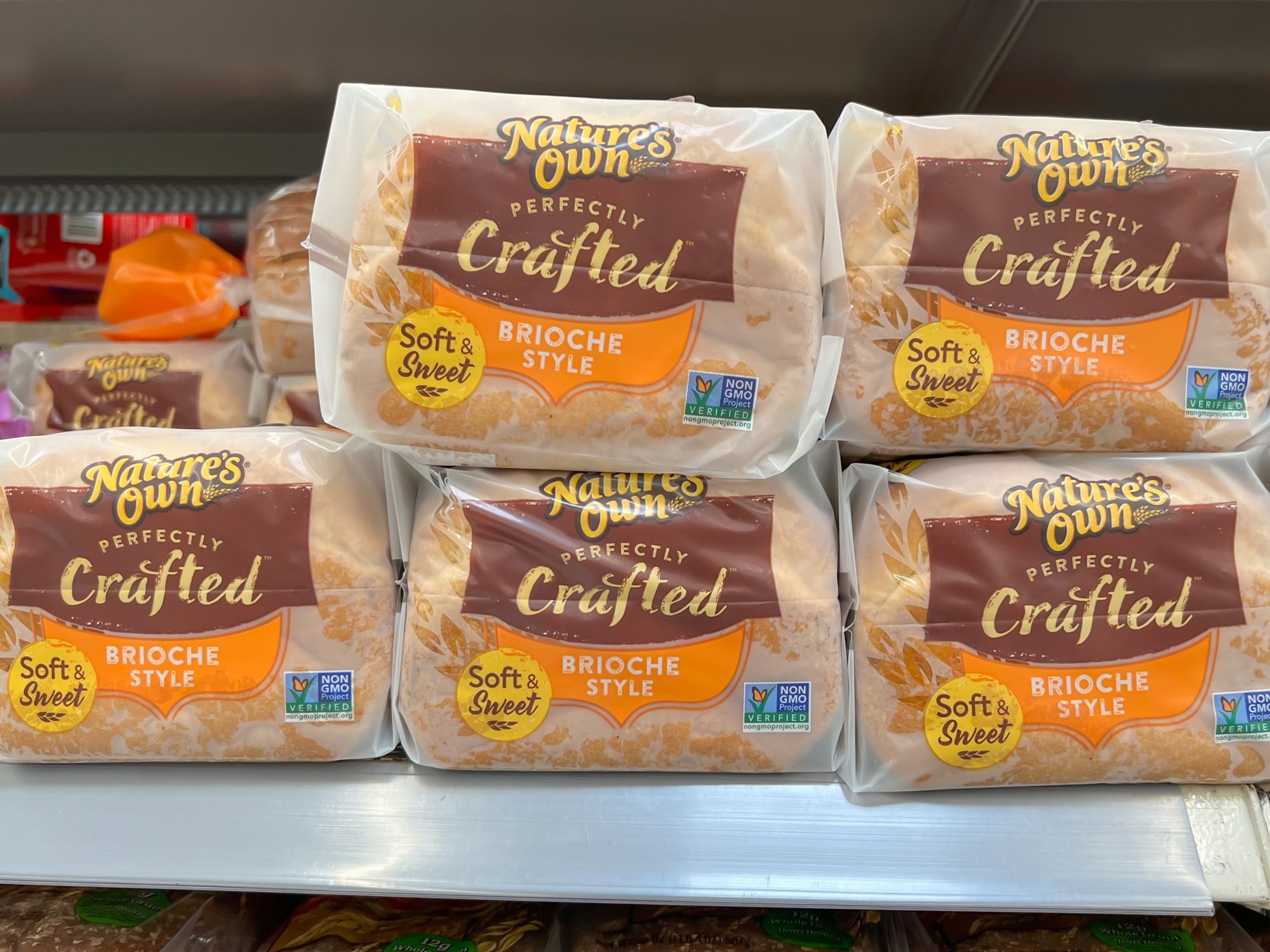
110 calories, 1.5 g fat (0.5 g saturated fat), 170 mg sodium, 21 g carbs (1 g fiber, 4 g sugar), 4 g protein
This bread is made with unbleached enriched wheat flour, which, though not chemically bleached, is still a refined grain. As a result, it doesn't have the same fiber content and some nutrients that are inherent in whole grains," explains Danielle Crumble Smith. She notes that refined grains can lead to spikes in blood sugar and don't offer the same satiety and health benefits as whole grains.
Smith points out that while the other ingredients in this bread might not be harmful to the general population, the inclusion of refined grains, added sugars, and additives makes it a less optimal choice for those who are focused on consuming whole foods or trying to reduce their intake of added sugars.
However, Smith also emphasizes that it's okay to occasionally indulge in treats like a BLT on brioche or French toast for breakfast. The key is to practice moderation and ensure these items are balanced within a diet that predominantly features whole, unprocessed foods.
9) Thomas Cinnamon Raisin Swirl Bread
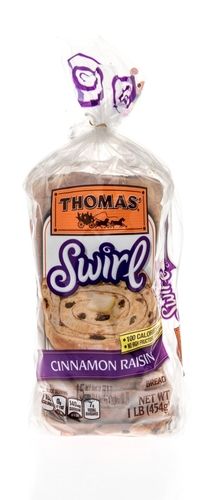
90 calories, 1.5 g fat (0 g saturated fat), 140 mg sodium,18 g carbs (<1 g fiber, 6 g sugar), 2 g protein
This sweet bread, resembling a dessert, contains 6 grams of sugar per slice and has minimal fiber content. This composition makes it more likely to cause rapid increases in blood sugar levels. Therefore, Danielle Crumble Smith advises individuals with diabetes or insulin resistance to avoid or limit their consumption of this cinnamon-raisin bread.
Smith also highlights that this bread includes an emulsifier known as monoglycerides. These can be synthetically produced or derived from animal or vegetable fats. Although they are generally considered safe, some individuals choose to steer clear of synthetic or heavily processed additives in their diet.
10) Bimbo Soft White Bread
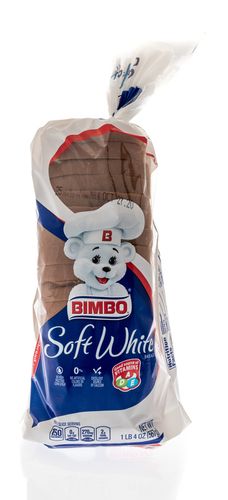
Per 2 slices: 150 calories, 2 g fat (0 g saturated fat), 290 mg sodium, 28 g carbs (<1 g fiber, 3 g sugar), 5 g protein
Bimbo's Classic White Bread, primarily made from refined grains and lacking in fiber, is not the best nutritional choice. Danielle Crumble Smith points out that its major drawbacks include a high sodium content per slice and a minimal amount of fiber.
Smith further explains that a diet high in sodium and low in fiber can contribute to various health issues, including heart disease and gastrointestinal problems.
Moreover, Bimbo's Soft White Bread contains several artificial preservatives, like calcium propionate, and dough conditioners such as DATEM and monoglycerides. Smith advises against choosing breads with these kinds of additives.

